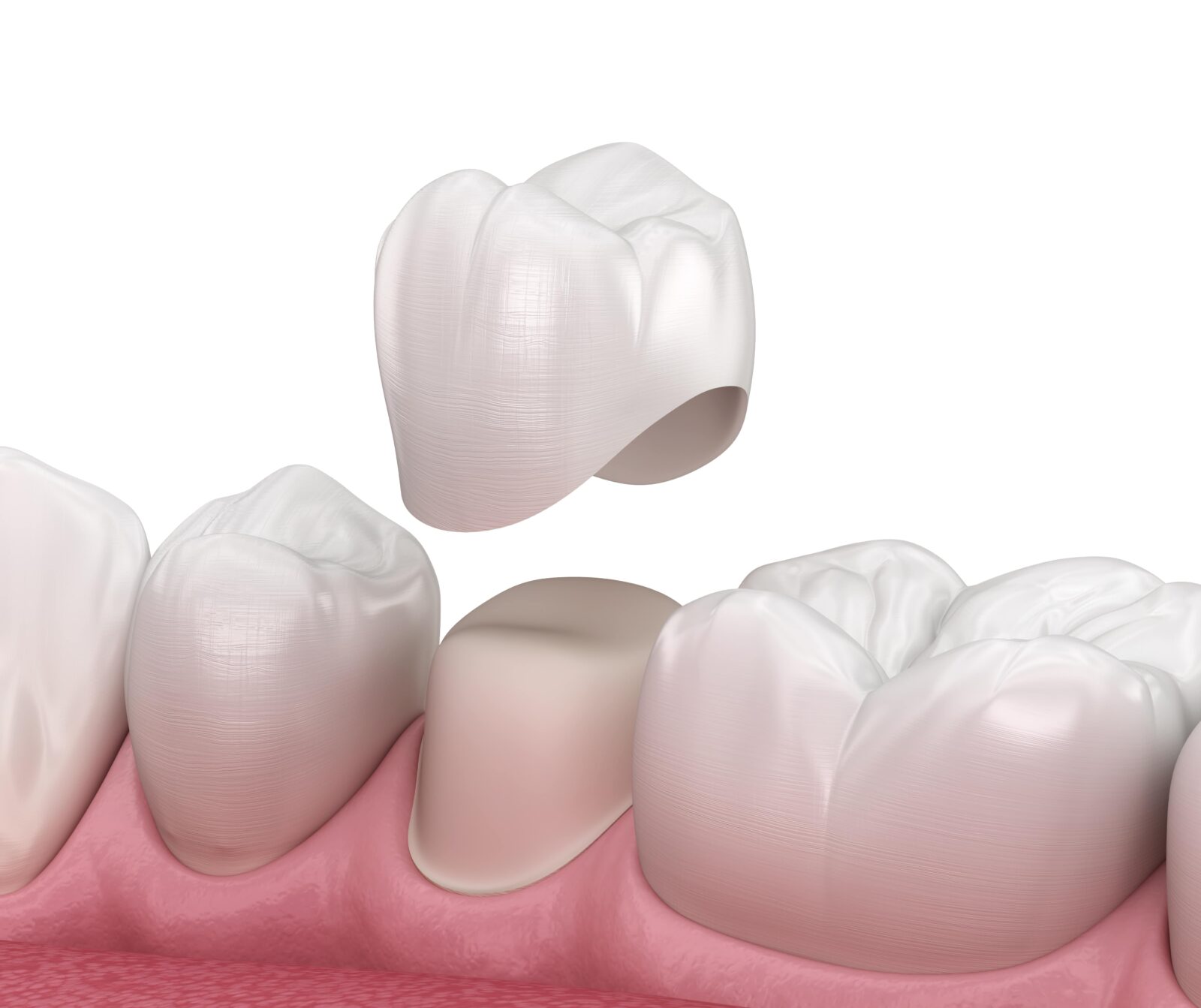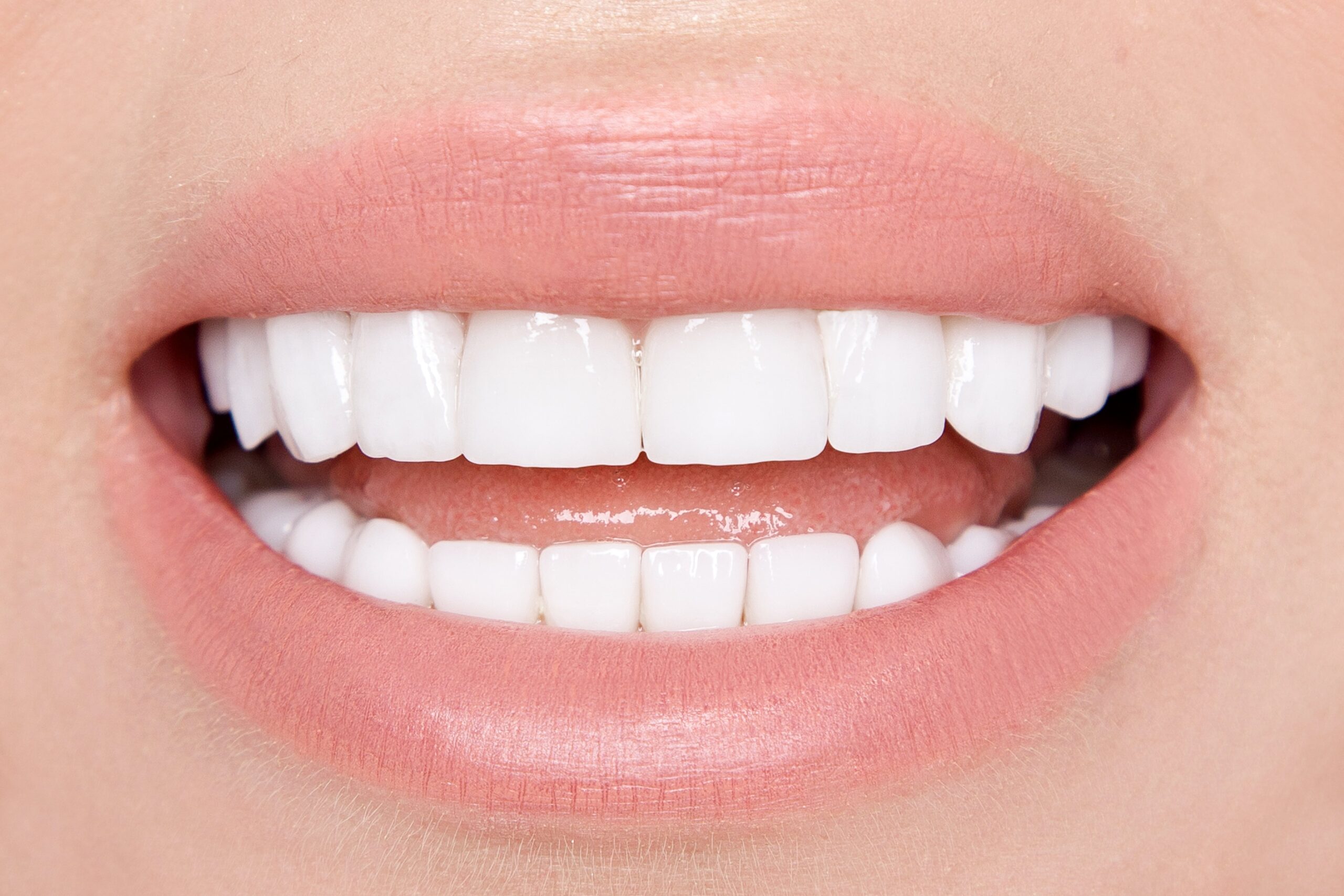Are you considering cosmetic dental treatments but unsure whether to choose dental crowns or veneers? This decision is pivotal in achieving the smile you desire and requires a thorough understanding of what each option entails. In this blog post, we compare the structural, aesthetic, and financial considerations of dental crowns and veneers. We’ll also provide practical advice on how to determine which solution might be the best fit based on your specific dental needs and personal preferences. Join us as we explore these two popular cosmetic dental procedures to help you make a confident and informed choice.
In This Blog:
- Understanding Dental Crowns
- Exploring Veneers
- Making the Right Choice
Understanding Dental Crowns

Dental crowns are custom-fitted caps placed over a tooth to restore its shape, strength, and appearance. Crowns are typically used when a tooth is significantly damaged or decayed, providing a solution that not only improves aesthetics but also enhances the functionality of the tooth. There are different types of dental crowns, including:
- Porcelain: Matches the natural color of your teeth and is preferred for front teeth.
- Ceramic: Offers a sturdy restoration and is well-suited for patients with metal allergies.
- Gold and Metal Alloys: Known for their durability and strength, making them ideal for back teeth.
Advantages and Disadvantages of Crowns:
Here’s a table highlighting the advantages and disadvantages of dental crowns:
| Advantages | Disadvantages |
| Restorative Power: Crowns can restore a tooth that has been significantly damaged by decay, fracture, or other issues, effectively bringing it back to its original strength and functionality. | Tooth Preparation: Installation of crowns requires the removal of a substantial part of the tooth, which can weaken the natural structure. |
| Durability: Made from materials like porcelain, ceramic, or metal, crowns are durable and can withstand the forces of chewing, lasting on average 10-15 years with proper care. | Cost: Crowns are generally more expensive than other dental treatments like fillings or veneers, due to the materials used and the complexity of the procedure. |
| Aesthetic Improvement: Crowns are designed to match the color and appearance of your natural teeth, significantly enhancing your smile and improving your oral aesthetics. | Potential for Complications: Like any invasive procedure, the placement of crowns can lead to complications such as sensitivity, discomfort, or even the need for root canal therapy if the tooth pulp is damaged. |
| Versatility: Crowns are not only used for restoring teeth but also for improving the appearance of misshapen or severely discolored teeth, covering implants, and anchoring bridges. | Irreversible Process: Once the natural tooth material is removed to accommodate a crown, the process is irreversible. The tooth will always require a crown thereafter. |
| Protective: They protect weak teeth from further damage or decay, effectively preventing further dental problems. | Maintenance: Crowns require meticulous oral hygiene and regular dental check-ups to prevent decay under the crown and ensure their longevity. |
This table provides a comprehensive overview of the key benefits and potential drawbacks associated with dental crowns, helping you to weigh your options carefully when considering this type of dental restoration.
Exploring Veneers

Veneers are thin shells designed to cover the front surface of teeth, primarily used for cosmetic enhancements. They are perfect for treating minor flaws such as discoloration, chips, or gaps between teeth, offering a relatively quick and effective way to beautify your smile. There are two different types of veneers:
- Porcelain Veneers: Highly durable and resist staining, reflecting light similarly to natural tooth enamel.
- Composite Resin Veneers: Less expensive and require fewer visits to install, but are less durable than porcelain.
Advantages and Disadvantages of Veneers:
Here’s a table highlighting the advantages and disadvantages of dental veneers:
| Advantages | Disadvantages |
| Aesthetic Enhancement: Veneers significantly improve the appearance of your teeth, correcting issues such as discoloration, minor misalignments, and chips. They are especially effective for creating a uniformly white and beautifully aligned smile. | Irreversible Process: The process of applying veneers involves removing a small amount of the enamel, which is irreversible. Once placed, your teeth will always need to be protected with veneers. |
| Less Invasive: Veneers require less removal of the tooth structure compared to crowns, which only necessitates a thin layer of enamel from the front of the tooth. This conserves more of the natural tooth. | Fragility: While they are durable, veneers are not as strong as crowns and can chip or crack if subjected to excessive force, such as teeth grinding. |
| Stain Resistance: Porcelain veneers are highly resistant to stains compared to natural teeth or composite resin veneers, which makes them a popular choice for a permanently bright smile. | Not Suitable for Damaged Teeth: Veneers are not suitable for teeth that require significant structural repairs or that have extensive decay. They are purely cosmetic. |
| Quick Cosmetic Solution: Veneers typically require fewer visits to complete than crowns, making them a faster solution for cosmetic improvements. | Cost: While generally less expensive than crowns, veneers can still be a considerable investment, especially if opting for high-quality porcelain. |
| Customization: Veneers are tailor-made to fit the shape and color that best suits your individual appearance, offering a very natural look that can be adjusted according to your cosmetic preferences. | Limited Lifespan Compared to Crowns: While durable, veneers typically last 7 to 15 years, which is less than the average lifespan of crowns, necessitating future replacements. |
This table presents a clear comparison of the benefits and potential downsides of opting for veneers, providing essential insights for those considering this cosmetic dental treatment.
Making the Right Choice
When choosing between crowns and veneers, consider the following factors:
- Extent of Damage: Crowns are preferable for teeth that require extensive restoration. Veneers are best suited for addressing aesthetic concerns.
- Desired Outcome: If you seek a more dramatic transformation or need to strengthen your teeth, crowns might be the better option. Veneers are ideal for cosmetic improvements without altering the tooth structure extensively.
- Cost and Longevity: Crowns typically cost more but offer a longer-lasting solution. Veneers, while generally less expensive, might need to be replaced more frequently.
Consult with Your Dentist
The best way to decide between crowns and veneers is to consult with your dentist. They can assess your specific dental issues, discuss your aesthetic goals, and help you understand the pros and cons of each option. A professional evaluation ensures that you choose the treatment that best suits your needs and leads to a satisfying result.
Conclusion
Both dental crowns and veneers offer valuable solutions for enhancing your smile. By carefully considering your dental health, aesthetic goals, and financial situation, and by consulting with your dentist, you can choose the option that best fits your needs. Whether you opt for the durability and comprehensive coverage of crowns or the minimalistic and cosmetic appeal of veneers, you’re taking a significant step towards a brighter, more confident smile.




